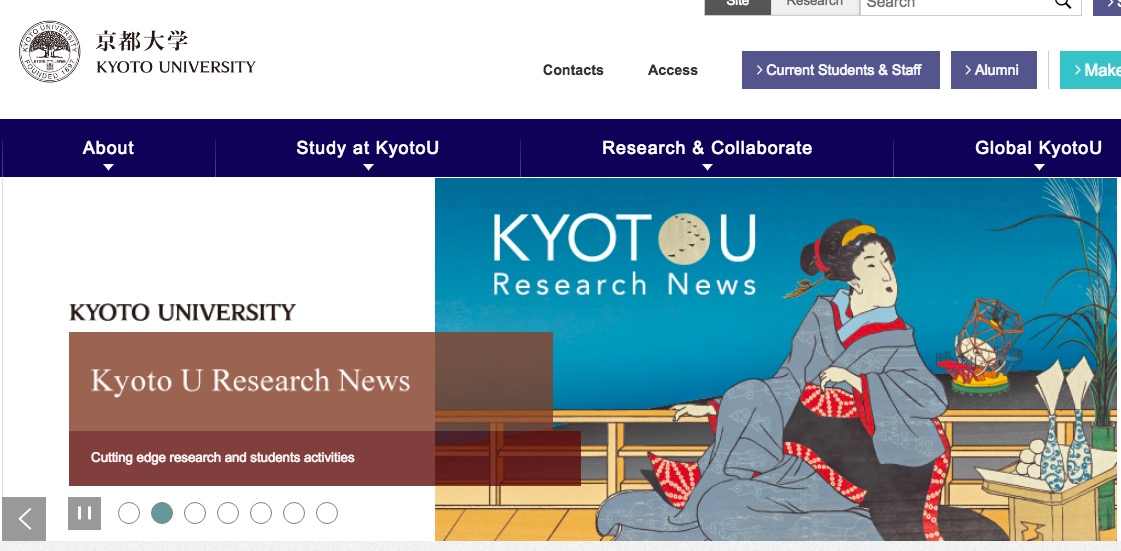An Insider’s Look Into the English Programs at Kyoto University’s Economics Department — PART 2 by Julie Taeko
Preamble
The author is a current Masters Degree student in the English Economics Program in her second year, so it will be written from her perspective. The opinions that are shared in this article are only one person's point of view, and are entirely meant to help provide potential candidates with insider information that cannot yet be found online, or is challenging to find online.
Why Did I Chose the EA Program at Kyoto University Versus the English Management School's IPROMAC Program at Kyoto University?
After many conversations with my Professor, Chihiro Suematsu, and students who were part of the IPROMAC program at Kyoto University, I decided that the English EA Economics Program was the best for me, because of the ability to spend more time researching (with half the number of units necessary to graduate compared to the English Management School's IPROMAC Program), and the Masters Thesis requirement.
Although I attended UC Berkeley as an undergraduate student, I was not required to write a Bachelor's Thesis, so I thought it would be an exciting challenge and wonderful opportunity to write a Masters Thesis about women's entrepreneurship and empowerment in Japan.
What are the Application Requirements for the English Economics Masters Degree Program at Kyoto University?
The Masters Degree requirements are subject to change, so it's always best to refer to the website. Here is the website for the English Economics Masters Degree Program Application.
What are the Application Requirements for the English Economics PhD Degree Program at Kyoto University?
The PhD Degree requirements are subject to change, so it's always best to refer to the website. Here is the website for the English Economics PhD Degree Program Application.
What are the Best Elements About This EA Program at Kyoto University?
Honestly, the best thing about this program is the freedom to choose a topic that you are truly passionate about, as long as you can prove during the interviews that it relates to sustainability. Also, you don't necessarily have to research a topic that relates to Japan. In fact, some students are researching GMO crops in the Philippines.
In my case, I argued that empowering women with more career options in Japan, whether it's starting an entrepreneurship or returning to the workplace after having a child, is sustainable. Why? Because if women have the ability to run their own business under their own terms, then they can more easily manage both a household and a career. Furthermore, the Japanese government is actively promoting both women's entrepreneurship in Japan, as well as programs to help women re-enter the workforce after having a child, or even getting married. After all, Japan's economy will continue to shrink, if it does not have a viable, healthy, and robust workforce.
Historically, Japanese women have left the workforce after getting married, and especially after having a child. There are many societal pressures for women to choose to stay at home to raise the children, take care of the household finances, and take care of the elderly parents.
However, the times are changing, due to the rapidly shrinking workforce, and the stagnant salaries, making it more of a requirement for women to work outside of the house. Currently, many women are working at part-time jobs with no benefits or upward mobility. But at least, they are working and have that option.
What is Something that Could be Changed About This EA Program at Kyoto University?
Nothing is perfect in life. And there's a common saying that private school students in California are hand-fed career counseling, scholarship options, college admissions help, etc. on a silver spoon; whereas, public school students must fight tooth-and-nail for information about scholarships and admission information by dealing with bureaucratic administrations. But this is positive too, as public school students are forced to take the initiative to get things done, and must consistently be their own advocate.
Likewise, Kyoto University as its thorny edges, but if you prevail, you will be all the more victorious. Sometimes, it takes courage; sometimes it takes persistence. Overall, it teaches you how to be your own advocate and different forms of negotiation. After all, no individual, company, institution, system, or country is perfect, so we all must learn how to work with imperfections.
And on the bright side, you may even be taught by a Nobel Prize winner, or at least be able to attend a lecture. What more can you ask for?
In Conclusion
Thank you very much for reading this Part 2 article about pros and cons, why I chose this program over others, and degree requirements.
Check out Part 1 to learn more about why this program was created, why it starts in October versus April — the typical starting time for Japanese schools, and who are the participants of the program.









